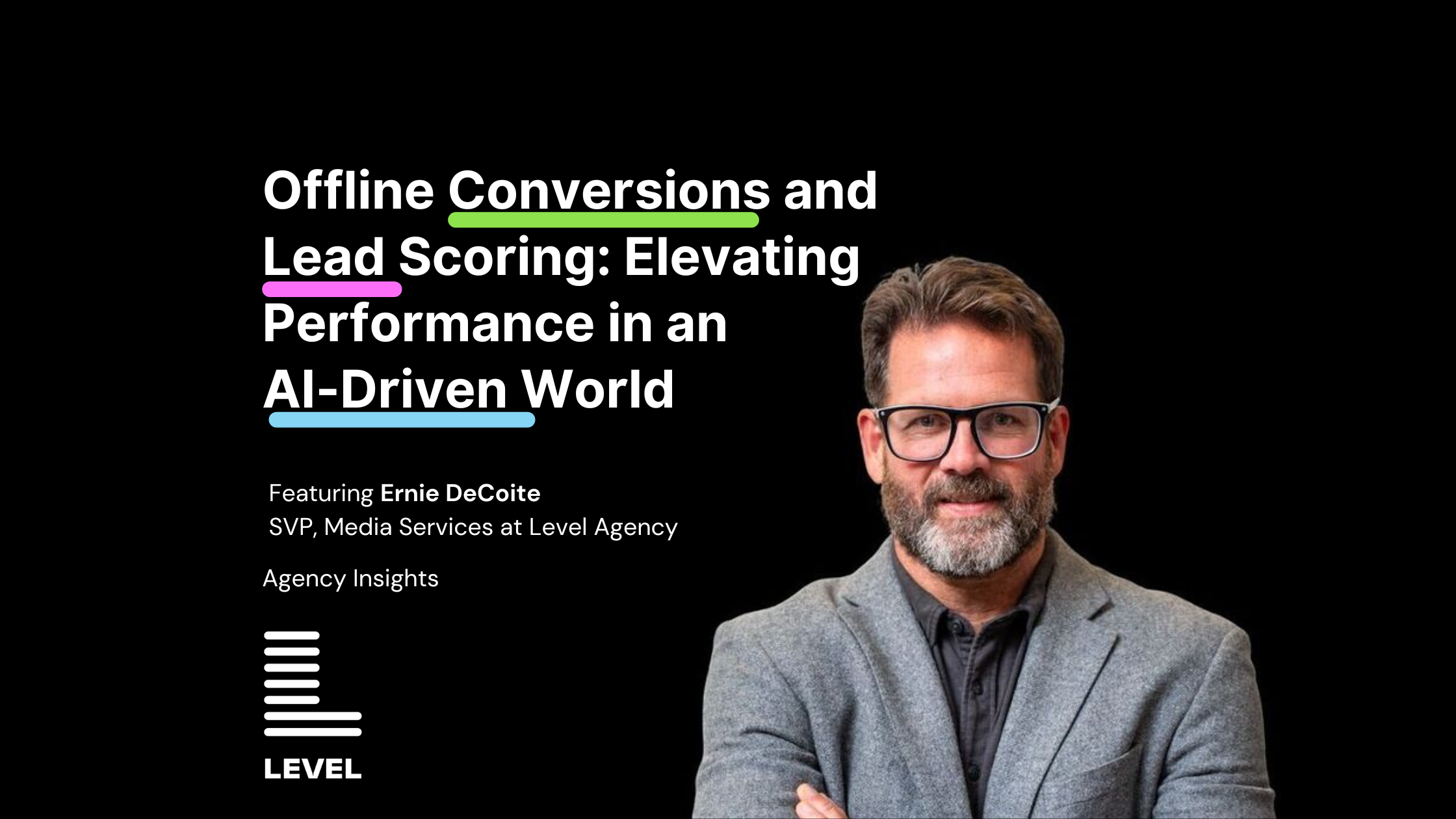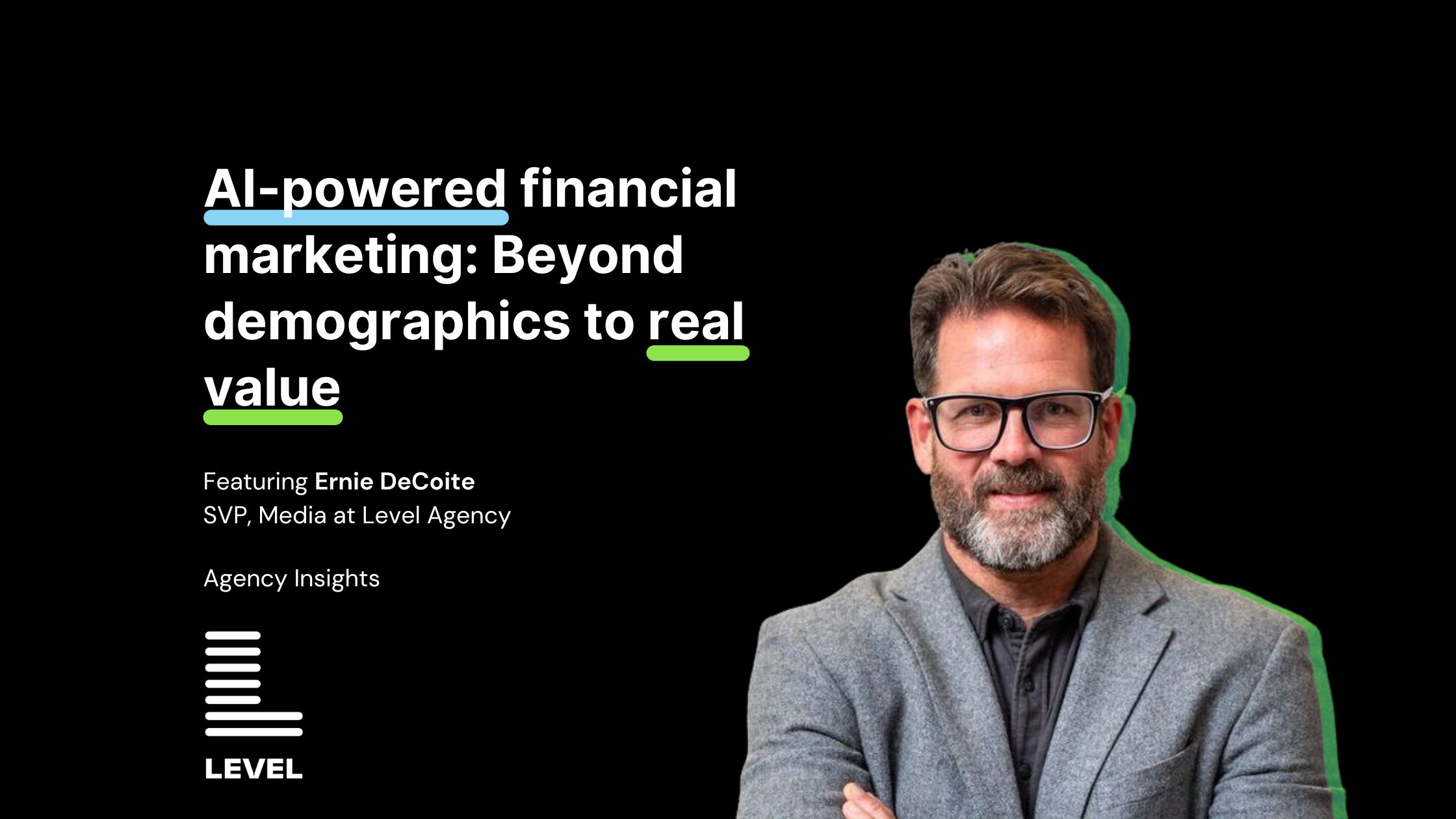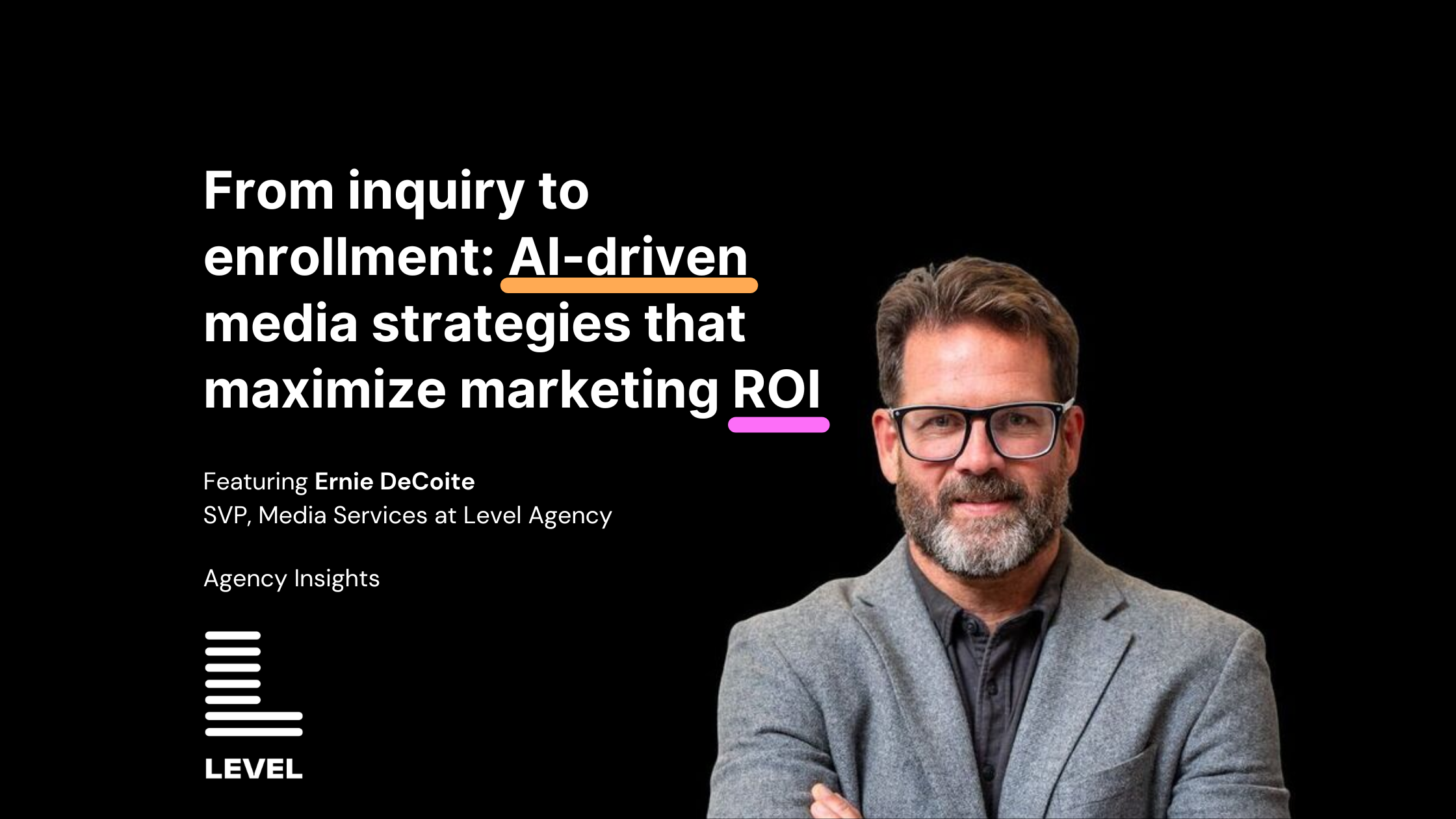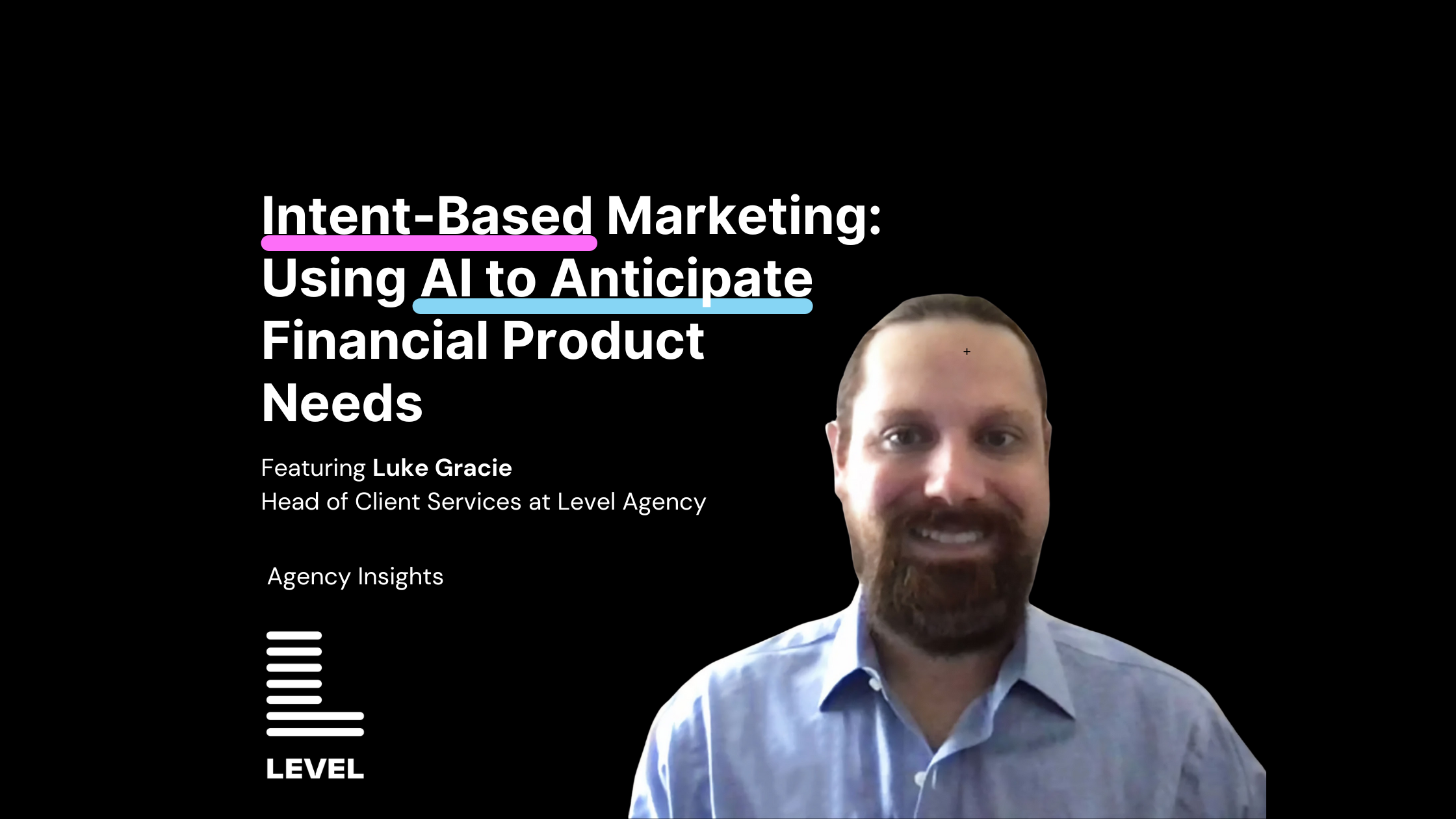Capturing a lead is only the beginning. For industries with complex buying cycles—like B2B—the real challenge is turning that lead into a paying customer. But as consumer journeys become more intricate and platforms shift toward AI-driven campaign models (such as Google’s Performance Max or Meta’s Advantage+), the need for high-quality signals has never been more critical.
In this article, we’ll explore how offline conversions and predictive lead scoring can supercharge your advertising strategy, especially when keyword matching is getting increasingly broad and AI-based optimizations are in the driver’s seat. We’ll also examine why real-time (or near real-time) data feedback loops are crucial for success in a value-based bidding world.

The AI Shift: Why Signal Quality Matters More Than Ever
For years, advertisers manually fine-tuned keywords, bids, and audiences to reach ideal prospects. Now, platforms like Google Ads and Meta are automating much of that work through products like Performance Max (PMax) and Advantage+.
- Performance Max uses advanced machine learning to run campaigns across Google’s entire inventory—from Search and Display to YouTube and Gmail—relying heavily on advertiser-provided signals to optimize placements and bidding.
- Advantage+ on Meta automates audience selection, creative optimization, and bidding strategies in near real time, but again, it’s only as good as the data it receives.
At the same time, keyword matching on Google continues to broaden, reducing the control advertisers have over specific queries. That means it’s increasingly up to the platform’s algorithm to discern which searches and audiences drive the best outcomes for your business.
Bottom line: In an AI-driven landscape where advertisers have fewer manual levers, the platforms need robust, high-quality signals to make informed optimizations. Offline conversions and predictive lead scoring are two powerful ways to feed the right data back into the system.
The Gap in Lead-to-Close Attribution
Most online advertising platforms optimize campaigns based on conversions reported within relatively short windows—usually a few days or weeks. But if your sales cycle extends beyond that timeframe, the platforms may lose track of the final outcome, attributing value to every lead equally—even those that never convert.
- Extended Sales Cycles: In complex industries, a lead can take weeks or months to close.
- Partial Visibility: Platforms often only see the top-of-funnel action (like a form fill), without knowing whether that lead eventually became a customer.
Result: In a world where AI is making the bidding and targeting decisions, the algorithm might optimize toward the wrong signals (i.e., “easy” leads that never close), rather than focusing on the leads that truly drive revenue.
The Importance of (Near) Real-Time Feedback
While offline conversion reporting is powerful, timing is crucial in an AI-driven environment. If you wait 90 days to confirm a lead’s outcome, platforms like Google Ads and Meta may have already spent weeks optimizing for low-quality leads—simply because they had no better data.
- Data Latency: Delayed feedback can cause AI-driven campaigns to double down on unqualified leads, harming your efficiency.
- Short Attribution Windows: Many ad algorithms use frequent data refreshes to adjust bids. Delaying conversion updates means they’re often making decisions with incomplete information.
Solution: Send high-quality signals (like a predicted lead score) back to the platforms quickly—within hours or days—so they can adjust optimizations in near real time.
Predictive Lead Scoring: Bridging the Gap for Complex Cycles
Predictive lead scoring uses a combination of first-party data and potentially enriched third-party data to assign a likelihood of conversion to each lead long before the actual sale is recorded.
How It Works
- Data Collection: Aggregate first-party metrics (form fields, on-site behavior, CRM notes) and possibly enrich them with external data (firmographics, credit scoring, etc.).
- Model Development: Use data science techniques (e.g., logistic regression, random forest, gradient boosting) to identify patterns in historical leads that successfully converted.
- Real-Time Scoring: As each new lead arrives, a score predicts its probability of ultimately closing.
- Value-Based Bidding: Feed this score back to your ad platform as a conversion “value,” allowing the AI-driven systems (PMax, Advantage+, etc.) to optimize bids more accurately.

Maximizing Results with Value-Based Bidding
Platforms like Google Ads offer Max Conversion Value bidding, which automates bid adjustments to maximize the total value of your conversions. Meta’s Advantage+ solutions also support optimization toward high-value or high-likelihood conversions.
- Lead Quality Input: When your predictive lead scoring data is fed back as a “conversion value,” the algorithm prioritizes better leads, simultaneously increasing efficiency and volume.
- Long-Term Gains: Focusing on higher-value leads not only boosts immediate returns but also helps your campaigns discover new profitable audiences over time.
Double Win: Advertisers often witness a rise in overall conversion volume and higher lead quality— while simultaneously lowering the average CPL. That’s a powerful combination in any performance marketing playbook.
Implementing a Seamless Offline Conversion & Lead Scoring Framework
To fully capitalize on AI-driven ad platforms:
- CRM Integration: Ensure your CRM (Salesforce, HubSpot, custom database, etc.) syncs seamlessly with your ad platforms.
- Data Mapping: Identify the critical offline milestones (qualified lead, demo, final sale) and map them back to your online campaigns.
- Build Predictive Models: Partner with data scientists (or a specialized agency) to develop a predictive lead scoring model tailored to your vertical and target audience.
- Iterate & Refine: Continuously update your model as you gather more data, adjusting for new behaviors and seasonal patterns.
This framework ensures real-time or near-real-time feedback, giving AI-based platforms the insights they need to properly optimize your budget.
Real-World Impact: More Volume, Better Quality, Lower CPL
Organizations using predictive lead scoring and near-real-time offline conversion uploads often see:
- Improved Funnel Efficiency: Your pipeline fills with fewer “junk” leads and more high-potential opportunities.
- Shorter Sales Cycles: Sales teams can prioritize leads most likely to close, accelerating time to revenue.
- Optimized Budget Allocation: Marketing dollars flow toward channels and tactics delivering the best lead quality.
In an environment where the platforms themselves handle much of the targeting and bidding, feeding the algorithm the best possible data is your primary lever for success.
Ready to Transform Your Lead Generation Strategy?
At Level Agency, we specialize in performance marketing for complex buying cycles of B2B. Our data science team crafts predictive lead scoring models and seamless offline conversion workflows to give AI-driven campaigns (like Performance Max or Advantage+) the clarity they need. The result? Higher lead quality, better conversion volume, and lower cost per lead—simultaneously. Ready to take your campaigns to the next level? Reach out to us and let’s discuss how to customize a solution that fits your business needs.









